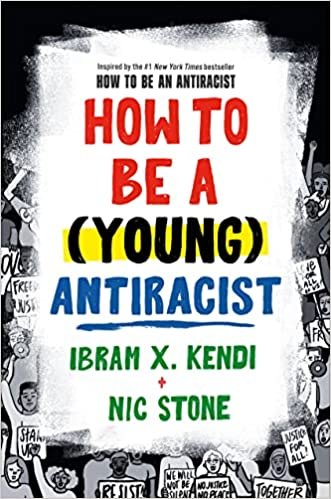Something Happened In Our Town 2018
Emma and Josh heard that something happened in their town. A Black man was shot by the police.
"Why did the police shoot that man?"
"Can police go to jail?"
Something Happened in Our Town follows two families — one White, one Black — as they discuss a police shooting of a Black man in their community. The story aims to answer children's questions about such traumatic events, and to help children identify and counter racial injustice in their own lives.
Includes an extensive Note to Parents and Caregivers with guidelines for discussing race and racism with children, child-friendly definitions, and sample dialogues.
Free, downloadable educator materials (including discussion questions) are available at www.apa.org.
From the Note to Parents and Caregivers:
There are many benefits of beginning to discuss racial bias and injustice with young children of all races and ethnicities:
Research has shown that children even as young as three years of age notice and comment on differences in skin color.
Humans of all ages tend to ascribe positive qualities to the group that they belong to and negative qualities to other groups.
Despite some parents’ attempts to protect their children from frightening media content, children often become aware of incidents of community violence, including police shootings.
Parents who don’t proactively talk about racial issues with their children are inadvertently teaching their children that race is a taboo topic. Parents who want to raise children to accept individuals from diverse cultures need to counter negative attitudes that their children develop from exposure to the negative racial stereotypes that persist in our society.
Emma and Josh heard that something happened in their town. A Black man was shot by the police.
"Why did the police shoot that man?"
"Can police go to jail?"
Something Happened in Our Town follows two families — one White, one Black — as they discuss a police shooting of a Black man in their community. The story aims to answer children's questions about such traumatic events, and to help children identify and counter racial injustice in their own lives.
Includes an extensive Note to Parents and Caregivers with guidelines for discussing race and racism with children, child-friendly definitions, and sample dialogues.
Free, downloadable educator materials (including discussion questions) are available at www.apa.org.
From the Note to Parents and Caregivers:
There are many benefits of beginning to discuss racial bias and injustice with young children of all races and ethnicities:
Research has shown that children even as young as three years of age notice and comment on differences in skin color.
Humans of all ages tend to ascribe positive qualities to the group that they belong to and negative qualities to other groups.
Despite some parents’ attempts to protect their children from frightening media content, children often become aware of incidents of community violence, including police shootings.
Parents who don’t proactively talk about racial issues with their children are inadvertently teaching their children that race is a taboo topic. Parents who want to raise children to accept individuals from diverse cultures need to counter negative attitudes that their children develop from exposure to the negative racial stereotypes that persist in our society.
Emma and Josh heard that something happened in their town. A Black man was shot by the police.
"Why did the police shoot that man?"
"Can police go to jail?"
Something Happened in Our Town follows two families — one White, one Black — as they discuss a police shooting of a Black man in their community. The story aims to answer children's questions about such traumatic events, and to help children identify and counter racial injustice in their own lives.
Includes an extensive Note to Parents and Caregivers with guidelines for discussing race and racism with children, child-friendly definitions, and sample dialogues.
Free, downloadable educator materials (including discussion questions) are available at www.apa.org.
From the Note to Parents and Caregivers:
There are many benefits of beginning to discuss racial bias and injustice with young children of all races and ethnicities:
Research has shown that children even as young as three years of age notice and comment on differences in skin color.
Humans of all ages tend to ascribe positive qualities to the group that they belong to and negative qualities to other groups.
Despite some parents’ attempts to protect their children from frightening media content, children often become aware of incidents of community violence, including police shootings.
Parents who don’t proactively talk about racial issues with their children are inadvertently teaching their children that race is a taboo topic. Parents who want to raise children to accept individuals from diverse cultures need to counter negative attitudes that their children develop from exposure to the negative racial stereotypes that persist in our society.
Publication Date: August 1, 2019
ISBN-10 : 1433828545
ISBN-13 : 978-1433828546
Author: Marianne Celano
Publisher: Magination Press
Pages: 40





